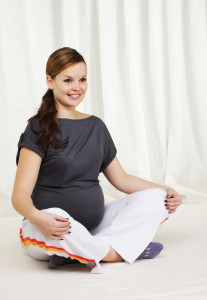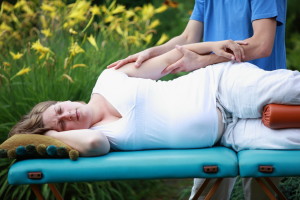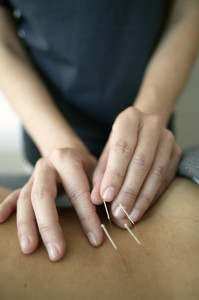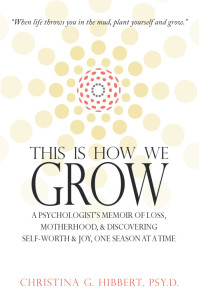Postpartum Depression Treatment:
Complementary & Alternative Modalities
Many women experiencing a Perinatal Mood or Anxiety Disorder (PMAD), like Postpartum Depression, are looking for alternative treatment options. Women want alternatives to taking medications, not only to avoid their potential side effects (especially in pregnancy and breastfeeding), but also for a greater sense of control and autonomy, and a desire for a more holistic approach.
The good news is, with more and more research on PMADs, there are more Complementary and Alternative Modalities (CAM) available than ever before. These non-medical interventions are generally considered safe for babies and moms alike, making them a great option to add to your postpartum depression treatment.
Let’s explore some of the most researched and validated forms of Complementary and Alternative Modalities for pregnancy & postpartum mental health:
 1) Exercise: Exercise is a well-validated component of physical and mental health, so it’s no surprise that exercise is also considered an important part of pregnancy and postpartum depression treatment. In fact, pregnant and postpartum women who exercise regularly tend to have lower rates of depression, better quality of sleep, and lower rates of fatigue overall. It’s also great for mental clarity, body image, and lowering stress. Adding exercise to psychotherapy or medications can also boost the effectiveness of those treatments and help you feel better quicker. Just be sure to discuss with your healthcare provider before you begin an exercise program. (more on exercise)
1) Exercise: Exercise is a well-validated component of physical and mental health, so it’s no surprise that exercise is also considered an important part of pregnancy and postpartum depression treatment. In fact, pregnant and postpartum women who exercise regularly tend to have lower rates of depression, better quality of sleep, and lower rates of fatigue overall. It’s also great for mental clarity, body image, and lowering stress. Adding exercise to psychotherapy or medications can also boost the effectiveness of those treatments and help you feel better quicker. Just be sure to discuss with your healthcare provider before you begin an exercise program. (more on exercise)
 2) Massage: Whether you’re pregnant or postpartum, massage is a wonderful tool. Not only does it relieve muscle tension and improve relaxation and sleep quality, but research shows it can also reduce anxiety, depression, and maternal stress. Researchers have also found that massage therapy increases the feel-good chemicals in your brain (like serotonin and dopamine) that make you feel well, while simultaneously reducing stress hormones, like cortisol. Some studies even show that massage in pregnancy reduces the incidence of low birthweight and prematurity too. Like exercise, massage has been shown to boost the effectiveness of other perinatal treatments. Plus, let’s face it, massage feels terrific. Just remember—massage therapy is not pampering, it’s a valid part of your pregnancy or postpartum emotional (and physical) health routine!
2) Massage: Whether you’re pregnant or postpartum, massage is a wonderful tool. Not only does it relieve muscle tension and improve relaxation and sleep quality, but research shows it can also reduce anxiety, depression, and maternal stress. Researchers have also found that massage therapy increases the feel-good chemicals in your brain (like serotonin and dopamine) that make you feel well, while simultaneously reducing stress hormones, like cortisol. Some studies even show that massage in pregnancy reduces the incidence of low birthweight and prematurity too. Like exercise, massage has been shown to boost the effectiveness of other perinatal treatments. Plus, let’s face it, massage feels terrific. Just remember—massage therapy is not pampering, it’s a valid part of your pregnancy or postpartum emotional (and physical) health routine!
3) Light Therapy: Phototherapy, or Light Therapy, is a well-validated treatment for depression in general, and also for postpartum depression. This form of treatment involves early morning light exposure, which not only helps boost your mood, but also helps reset your sleep cycle, enabling you to fall asleep and wake up earlier. If you live in a sunny place, sit outside or in front of a sun-filled window in the early morning for 20-60 minutes. If there’s no sun out, you can buy a light box (7,000-10,000 lux intensity—sold online and in many stores) and sit in front of it for the same amount of time to get the same effect. Light therapy is simple and can be highly effective, so why not give it a try!
You can also get out and go for a walk in the early-morning sun. Combining light therapy and exercise can give you a double-boost!
4) Omega-3 Fatty Acids: The cardiovascular benefits of Omega-3’s are well-documented, but did you know that Omega-3’s benefit your mental health as well? In fact, Omega-3 Fatty Acids, like those found in Fish Oil, can have an antidepressant effect on mild to moderate depression, and have been shown to improve pregnancy and postpartum depression without the negative side effects that medications can have. Additionally, “Most of the data we have so far suggests there is an additional response of adding omega-3 fatty acids to someone’s antidepressant medication regiment. What’s really exciting about omega-3 fatty acids in the study of pregnancy and post-partum is babies need omega-3 fatty acids for optimal neurocognitive development. So unlike medication where we kind of wring our hands and weigh the risks and benefits of medication, we want babies to be exposed to omega-3 fatty acids” (Dr. Marlene Freeman, Harvard & Mass General Psychiatrist and a top researcher of Omega-3’s in pregnancy and postpartum). Thus, Omega-3’s are generally viewed as a win-win supplement to add to your treatment routine. Though Omega-3’s are found in a variety of foods, fish sources are the most recommended for mental health benefits, and 1-3 grams per day is the recommended dose. The only downside seems to be mild gastrointestinal symptoms in some women, so if your stomach can handle it, I always recommend a fish oil supplement for pregnant and postpartum women.
5) Doulas/Home Visitors: Women who receive support in their homes tend to have less depression and anxiety. It makes sense, doesn’t it? Whether through a doula or another home-visitor program, in-home support can provide practical help (like caring for the baby or housework so mom can sleep) and emotional help (like non-directive counseling or just a listening ear) that can alleviate symptoms of PMADs. Research also shows that when home visitors receive even basic training on postpartum depression and counseling skills, the benefits can be even greater.
 6) Acupuncture: Not only has acupuncture been shown to improve physical health, it also increases relaxation, sleep quality, and reduces fatigue and stress. Acupuncture has also been validated as a safe and effective treatment for pregnancy and postpartum depression—another option worth checking into.
6) Acupuncture: Not only has acupuncture been shown to improve physical health, it also increases relaxation, sleep quality, and reduces fatigue and stress. Acupuncture has also been validated as a safe and effective treatment for pregnancy and postpartum depression—another option worth checking into.
Hopefully you can see that alternative postpartum depression treatment methods are available, and they can make a big difference in your pregnancy or postpartum well-being. For mild symptoms, CAMs may serve as the main intervention, but for most women, CAMs work best as supplements to other forms of postpartum depression treatment. For optimal pregnancy or postpartum mental health, work with your medical or mental health provider to explore all of your options, and find what works best for you.
Related Articles:
Postpartum Depression Treatment
PPD Treatment: For Dads & Partners
Postpartum Depression & Men: The Facts on Paternal Postnatal Depression
Pregnancy & Postpartum Mood & Anxiety Disorders: Are Women of Advanced Maternal Age at Higher Risk?
Be sure to check out Dr. Hibbert’s Amazon Bestseller, This is How We Grow–
available now on Amazon.com!
Join my This is How We Grow Personal Growth Group!
FREE. Online. Growth. What more could you ask for?
Don’t miss a thing!
SUBSCRIBE, below, “like” my Facebook pages (Dr. Christina Hibbert; This Is How We Grow) and follow me on Twitter,Pinterest, & Instagram!
You may manage your subscription options from your profile
Resources:
http://www.womensmentalhealth.org
http://americanpregnancy.org/pregnancyhealth/prenatalmassage.html

